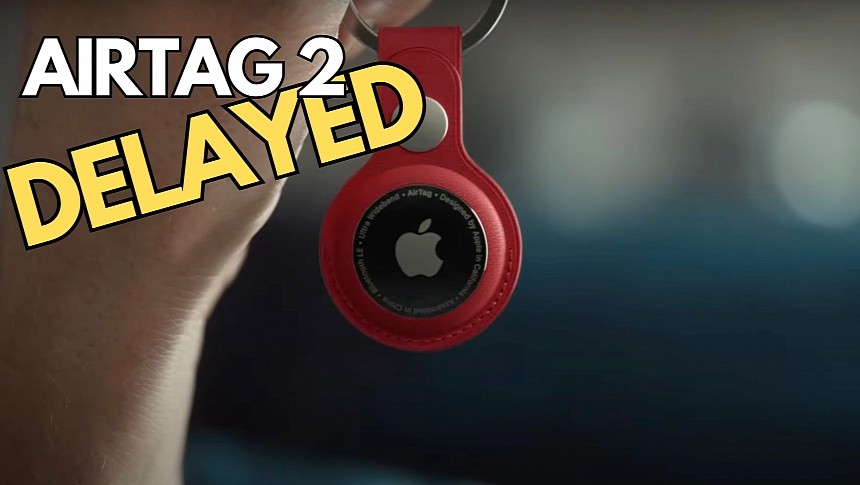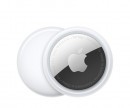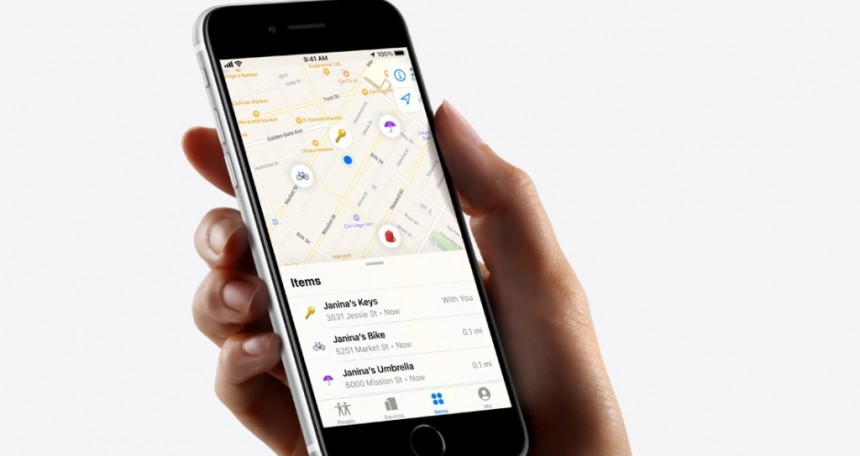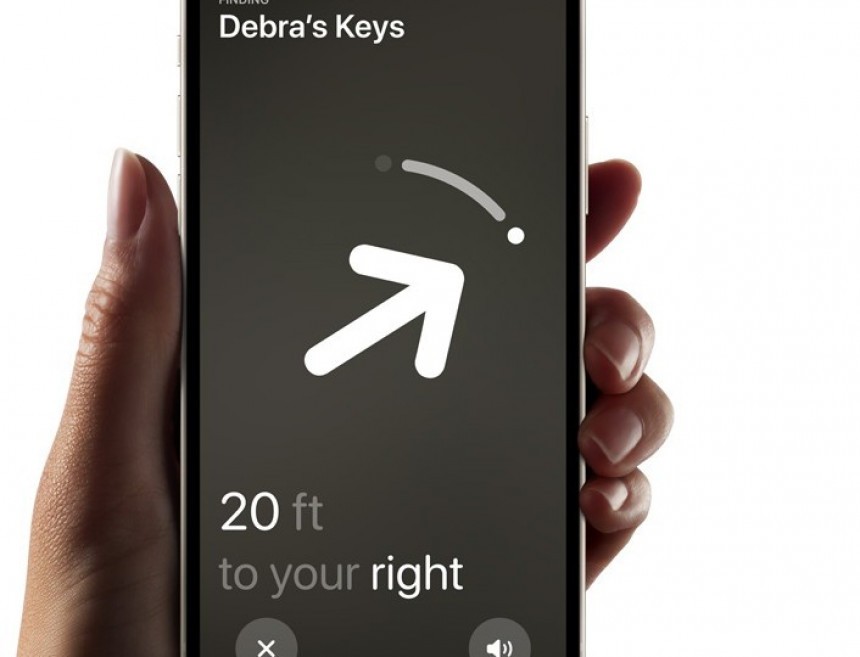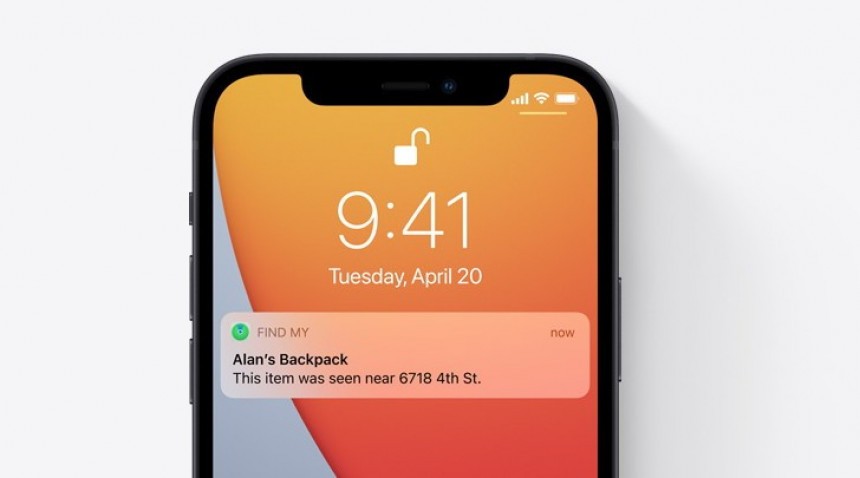Apple's AirTag has become a must-have device for vehicle owners, with police in several regions pointing to the tracker as the easiest way to keep tabs on a four-wheel companion.
The AirTag's small form factor and modus operandi allow the device to serve as an almost real-time tracker, sharing its location with the master device whenever an iPhone is in proximity.
Apple planned to launch a new-generation AirTag in 2024, but according to a recent report, the company has pushed back the unveiling to 2025. The reasons are threefold, and for Apple, they make perfect sense, especially from a business perspective.
The AirTag is a pill-shaped device that connects to the Find My network to broadcast its location to a master device.
It's a Bluetooth tracker, and while many people mistake it for a GPS tracker, the device doesn't come with a GPS sensor.
The AirTag uses a CR2032 battery, so it's not rechargeable. According to the official specs, the AirTag should offer approximately six months of battery life per unit, after which owners must replace the battery.
The AirTag only works with Apple devices and can't be turned off. The only way to disable an AirTag is to remove its battery.
The way the AirTag works is the main selling point. The device connects to the Find My network to share its coordinates, and the owner can see the location on the map on an iPhone.
Because it doesn't have a built-in Internet connection, the AirTag must connect to a nearby iPhone to communicate with the master device. It does it via Bluetooth, so it needs an Apple smartphone to be available in close range to use its Internet connection for location sharing.
The small form factor allows the AirTag to be placed virtually anywhere, and it's why car owners love the device. The AirTag can be planted anywhere in the cabin, and if the vehicle gets stolen, it can share its location without the thief knowing about it.
AirTags also come with anti-stalking protections, sending notifications to a nearby iPhone when the tracker moves with it. However, a thief wouldn't have the time to search for an AirTag when trying to run away from the police – it's also why law enforcement recommends car owners report the theft the second they notice the vehicle is missing.
A recent report indicates that Apple has decided to delay the launch of the AirTag by one year. The company originally wanted to unveil the AirTag 2 this year (likely in the spring or as part of its yearly fall event), but the new model is now expected in 2025.
There are three reasons why Apple doesn't want to launch the AirTag 2 this year.
First, the company has overproduced the AirTag, so its warehouses are already full of the first-generation model. Apple sees no reason to begin producing a second model when it still has plenty of unsold stock of the first-generation version. It hopes 2024 will help clear out the inventory, paving the way for a smoother introduction of the AirTag 2.
The company has heavily discounted the AirTag lately, likely as it tries to sell as many units as possible before it begins production of the AirTag 2. The price cuts will likely continue this year, though the price won't drop below the previous levels, as Apple isn't known as a big fan of discounts.
Second, Apple believes the AirTag still has a complete feature package, so it has little to improve on a second-generation iteration. One of Apple's main focuses on the next-generation AirTag is an upgraded chip, which should allow for a bigger range and more precise detection.
Third, Apple believes it has no competition on the Find My network despite several other companies launching products that offer similar capabilities. Generic Chinese brands have already invaded the market with Find My-capable AirTag alternatives, obviously available at ridiculous price points, but Apple doesn't consider these products competitors to its device.
Apple believes it dominates the market, so refreshing the AirTag isn't a priority since the existing model is already the device most people choose when looking for a tracker.
Apple is now expected to unveil the AirTag 2 at some point in 2025, so customers who want to buy the tracker have no reason to delay the purchase. It's what Apple hopes it'd happen too, as the company not only is trying to increase its market share in this space but also sell as many units as possible to clear out the inventory.
The company has remained tight-lipped on AirTag sales and its long-term plan for a product refresh, so you should take everything with a pinch of salt for now. However, you'd better not hold your breath for a 2024 refresh, and the price cuts should continue throughout the year.
Apple planned to launch a new-generation AirTag in 2024, but according to a recent report, the company has pushed back the unveiling to 2025. The reasons are threefold, and for Apple, they make perfect sense, especially from a business perspective.
What's the AirTag?
It's a Bluetooth tracker, and while many people mistake it for a GPS tracker, the device doesn't come with a GPS sensor.
The AirTag uses a CR2032 battery, so it's not rechargeable. According to the official specs, the AirTag should offer approximately six months of battery life per unit, after which owners must replace the battery.
The AirTag only works with Apple devices and can't be turned off. The only way to disable an AirTag is to remove its battery.
How it works?
Because it doesn't have a built-in Internet connection, the AirTag must connect to a nearby iPhone to communicate with the master device. It does it via Bluetooth, so it needs an Apple smartphone to be available in close range to use its Internet connection for location sharing.
The small form factor allows the AirTag to be placed virtually anywhere, and it's why car owners love the device. The AirTag can be planted anywhere in the cabin, and if the vehicle gets stolen, it can share its location without the thief knowing about it.
AirTags also come with anti-stalking protections, sending notifications to a nearby iPhone when the tracker moves with it. However, a thief wouldn't have the time to search for an AirTag when trying to run away from the police – it's also why law enforcement recommends car owners report the theft the second they notice the vehicle is missing.
The delayed launch and the three magic reasons
There are three reasons why Apple doesn't want to launch the AirTag 2 this year.
First, the company has overproduced the AirTag, so its warehouses are already full of the first-generation model. Apple sees no reason to begin producing a second model when it still has plenty of unsold stock of the first-generation version. It hopes 2024 will help clear out the inventory, paving the way for a smoother introduction of the AirTag 2.
The company has heavily discounted the AirTag lately, likely as it tries to sell as many units as possible before it begins production of the AirTag 2. The price cuts will likely continue this year, though the price won't drop below the previous levels, as Apple isn't known as a big fan of discounts.
Second, Apple believes the AirTag still has a complete feature package, so it has little to improve on a second-generation iteration. One of Apple's main focuses on the next-generation AirTag is an upgraded chip, which should allow for a bigger range and more precise detection.
Apple believes it dominates the market, so refreshing the AirTag isn't a priority since the existing model is already the device most people choose when looking for a tracker.
Apple is now expected to unveil the AirTag 2 at some point in 2025, so customers who want to buy the tracker have no reason to delay the purchase. It's what Apple hopes it'd happen too, as the company not only is trying to increase its market share in this space but also sell as many units as possible to clear out the inventory.
The company has remained tight-lipped on AirTag sales and its long-term plan for a product refresh, so you should take everything with a pinch of salt for now. However, you'd better not hold your breath for a 2024 refresh, and the price cuts should continue throughout the year.
